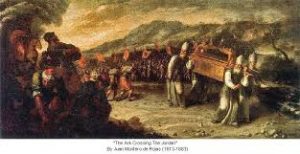Psalm 70

When the chips are down, when the rubber hits the road, when you’ve just drunk the last drop in Last Chance Saloon, what would you pray? If like me when your first read psalm 70 and thought, what has this got to do with me, then the worst crisis you’ve ever had might not have really been that much of a crisis. Not every refugee is threatened with life threatening violence but the numbers that are, are horrific. Not everybody whose life is threatened by violence is a refugee and again the statistics where this is the case is terrifying. What is the women married to a man who regularly beats her meant to pray? What should the teenager forced at gunpoint onto an inflatable to cross the Mediterranean pray. When I explained to an asylum seeker from Eritrea, that the letter he had received from the Home Office meant that they had the right to send him back to his country of birth, he just quietly cried repeating, ‘No, they can’t’, because he had just told me that for years he had been repeatedly beaten in their jails with electric cable on his feet. What should he have prayed? The examples could endlessly carry on. If one is a victim of such events then the prayer, ‘Make haste. O God, to deliver me! O Lord, make haste to help me! Let them be put to shame and confusion who seek my life.’ Vv.1,2 makes complete sense.
The vast majority of people living in fear for their lives are as the psalmist describes, poor and needy. v5 In that situation the need for salvation is great. Prayer is urgent and they long to rejoice and be glad. It is into that type of situation that the gospel is so crucial and along with that, the role of the church to bring people the gospel. When this happens then people can honestly pray, ‘You are my help and my deliverer, O Lord, do not delay.’ v5 They can also rejoice with the psalmist affirming, ‘God is great!’ v4
In Jesus we have a saviour who knows exactly what it is to have had powerful people to plot to kill him, have him arrested, tortured, publically humiliated and brutally executed. He then overcame through his resurrection but that in no way diminishes his suffering or his experience of fear. Fear so great he sweated blood. The gospel is at its most obviously meaningful in times of the greatest crisis. Perhaps this is why the church often prospers the most in times of greatest oppression because the person of Jesus cuts through empty materialism, temporary sating of senses, self-righteous rituals and the cruelty of one of human to another. Jesus has met people’s needs by giving himself not an ideology. He is the source of love, light, truth and hope.
Jesus though did not simply come to bring urgent relief to those who are suffering, his mission was much more than that, it was to bring people and God back into relationship and establish permanent reconciliation between humans and God through the forgiveness of sin and faith in him. But that does not take away from the repeated biblical opposition to injustice and oppression and the importance of his disciples to love and serve those in greatest need.
How do you think the church should respond to the prayer of psalm 70?
My Help” sung by the Brooklyn Tabernacle Choir in HD




